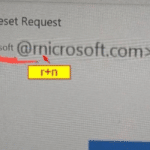
Launched in 2004, the Payment Card Industry Data Security Standard is a set of security measures that enhances the security of cardholder data and combats payment fraud.
It's not a law but a contractual requirement enforced by payment card companies and banks to protect sensitive credit card information, thus fostering trust between merchants and customers.
It is the latest iteration, emphasising continuous monitoring, enhanced data protection, and incorporating new technologies into compliance efforts.
It introduces a "Customised Approach" for compliance, allowing more flexibility in meeting security requirements based on the organisation's specific circumstances.
Introducing the ' Customised Approach ' is the most significant change from PCI DSS 3.2.1 to 4.0. This update differs from the traditional 'Defined Approach', which requires strict compliance with the technical controls specified in the standard.
This new approach allows users to select the most suitable environmental controls to manage associated risks. As a result, it offers greater adaptability and the ability to embrace innovative solutions.
In PCI DSS 4.0, users can use the Defined or Customised Approach, depending on their specific needs and circumstances
Other notable updates include:
The PCI Security Standards Council introduced this new audit on March 31, 2024.
It has a transition period for adopting the 64 new requirements, which allows organisations time to adjust to the comprehensive changes.

Introduced in 2007 by leading credit card companies, PCI Compliance comprises requirements to secure networks, protect cardholder data, and ensure a safe payment environment.
All credit card transaction entities must comply to maintain a secure processing environment.
Every merchant or service provider processing, transmitting, or storing cardholder data must adhere to PCI DSS guidelines. This includes businesses of all sizes and types that accept card payments, even if they outsource their payment processing.
For organisations already PCI-validated, it is crucial to review the changes in 4.0 and begin planning for the transition. This should involve consulting with a qualified security assessor to understand the implications of the new Customised Approach and other changes. If organisations do not comply with the latest requirements, they are at risk of the following:
Silver Lining offers tailored PCI solutions conforming to the 4.0 standards, ensuring your business efficiently meets all new security requirements.
For a deeper dive into PCI compliance and how to prepare for 4.0, visit our website's 'PCI Solutions' page or contact one of our experts on 0345 313 1111 or at [email protected]



